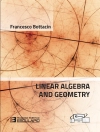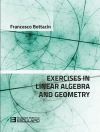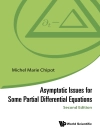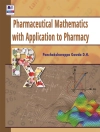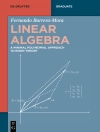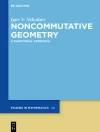This proceedings volume presents a diverse collection of high-quality, state-of-the-art research and survey articles written by top experts in low-dimensional topology and its applications.
The focal topics include the wide range of historical and contemporary invariants of knots and links and related topics such as three- and four-dimensional manifolds, braids, virtual knot theory, quantum invariants, braids, skein modules and knot algebras, link homology, quandles and their homology; hyperbolic knots and geometric structures of three-dimensional manifolds; the mechanism of topological surgery in physical processes, knots in Nature in the sense of physical knots with applications to polymers, DNA enzyme mechanisms, and protein structure and function.
The contents is based on contributions presented at the International Conference on Knots, Low-Dimensional Topology and Applications – Knots in Hellas 2016, which was held at the International Olympic Academy in Greece in July 2016. The goal of the international conference was to promote the exchange of methods and ideas across disciplines and generations, from graduate students to senior researchers, and to explore fundamental research problems in the broad fields of knot theory and low-dimensional topology.
This book will benefit all researchers who wish to take their research in new directions, to learn about new tools and methods, and to discover relevant and recent literature for future study.
Содержание
David Futer, Efstratia Kalfagianni, and Jessica S. Purcell, A survey of hyperbolic knot theory.- Colin Adams, Spanning surfaces for hyperbolic knots in the 3-sphere.- Vaughan F.R. Jones, On the construction of knots and links from Thompson’s groups.- Louis H. Kauffman, Virtual knot theory and virtual knot cobordism.- J/’ozef H. Przytycki, Knot Theory: from Fox 3-colorings of links to Yang-Baxter homology and Khovanov homology.- W. Edwin Clark and Masahico Saito, Algebraic and computational aspects of quandle 2-cocycle invariants.- Sam Nelson, A Survey of Quantum Enhancements.- Nafaa Chbili, From alternating to quasi-alternating links.- Alexander Stoimenov, Hoste’s conjecture and roots of the Alexander polynomial.- Nancy Scherich, A survey of grid diagrams and a proof of Alexander’s theorem.- Louis H. Kauffman and Sofia Lambropoulou, Extending the classical skein.- Maria Chlouveraki, From the framisation of the Temperley—Lieb algebra to the Jones polynomial: an algebraic approach.-Hoel Queffelec and Antonio Sartori, A note on the ${/mathfrak gl}_{m|n}$ link invariants and the HOMFLY–PT polynomial.- Mauro Spera, On the geometry of some braid group representations.- Celeste Damiani, Towards a version of Markov’s theorem for ribbon torus-links in ${/Bbb R}^4$.- Ioannis Diamantis, An alternative basis for the Kauffman bracket skein module of the solid torus via braids.- Bostjan Gabrovsek and Eva Horvat, Knot invariants in lens spaces.- Andrey M. Mikhovich, $QR$-presentations, schematization, conjurings and identity theorem for pro-$p$-groups.- Neslihan G/”ug/”umcu, Louis H. Kauffman, and Sofia Lambropoulou, A survey on knotoids, braidoids and their applications.- Rachel E. Ashley and Neil Osheroff, Regulation of DNA Topology by Topoisomerases: Mathematics at the Molecular Level.- Eleni Panagiotou, Topological entanglement and its relation to polymer material properties.- Stathis Antoniou, Louis H. Kauffman, and Sofia Lambropoulou, Topological surgery in the small and in the large.





